
Rebellion defends Joyride over plagiarism claim as Powerboats designer presses for royalties
The tabletop arm of UK video game and comics major Rebellion has defended its post-apocalyptic car racing game Joyride: Survival of the Fastest, after being accused of copying the design from a title it was previously in negotiations about publishing.
Corné van Moorsel, the creator of 2008 board game Powerboats, is pressing Rebellion for royalties and a co-design credit for Joyride, which he says copies his game’s core movement mechanics – a claim Rebellion has denied, although it acknowledges Powerboats was one of its influences for the title.
The situation is complicated by the fact that Joyride co-designer Duncan Molloy, head of the Sniper Elite and 2000AD publisher’s board game arm Rebellion Unplugged, approached van Moorsel in 2019 about reprinting Powerboats, before changing his mind several months after the pair met up at Spiel Essen that year.
Molloy says he began working on a new racing game two years later, and has publicly cited Powerboats as an influence alongside a string of other games including Gaslands, Formula D, Car Wars, Wreckfest and Mario Kart.
That game became Joyride, which raised about £87,500 from more than 1,400 backers during a Kickstarter campaign last year, and rose to the top of the BoardGameGeek hotness last month after a glowing recommendation from popular review site Shut Up & Sit Down.
The publicity brought the game to the attention of van Moorsel, who took to the game’s BoardGameGeek forum at the end of last month to call it out for “copying my whole game system”.
He told BoardGameWire he believes a co-designer credit with royalties payment “is the only logical option”, and criticised Rebellion for ghosting him in 2019 after he had sent them a contract for licensing Powerboats.
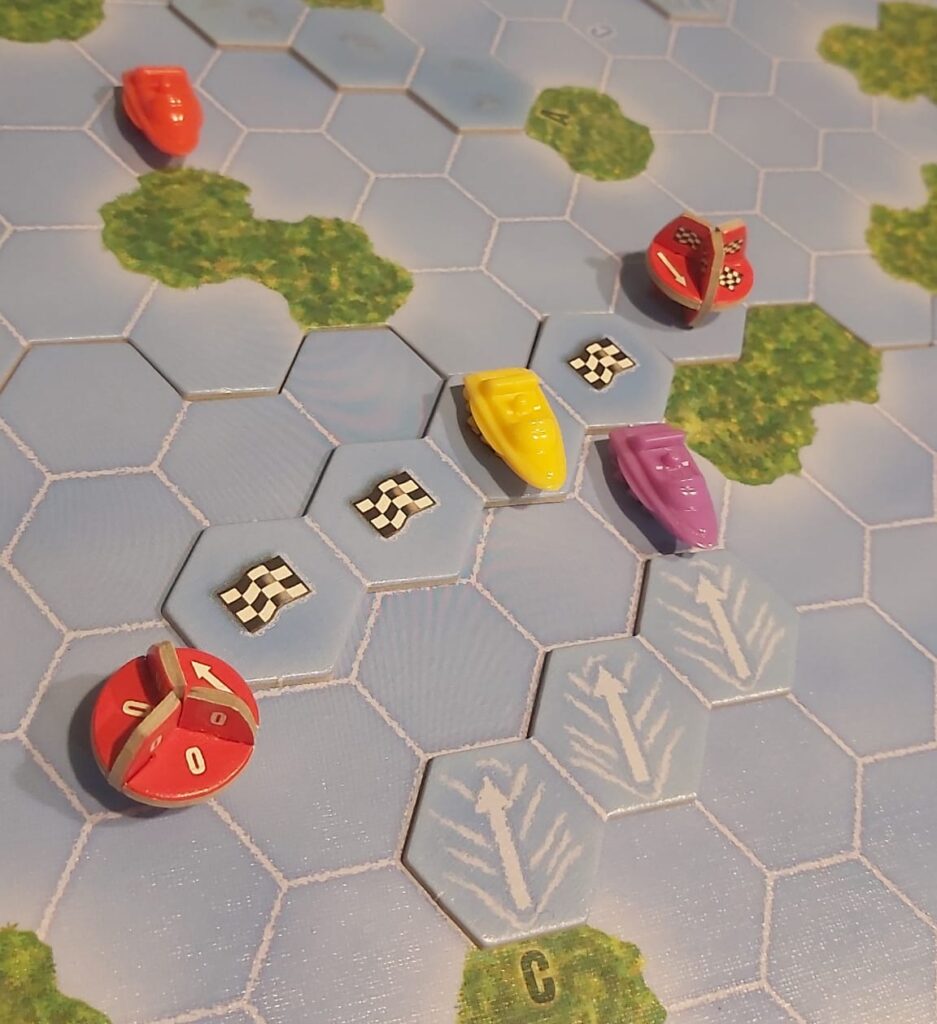
Molloy, who previously negotiated reprints of games including Odin’s Ravens, High Society and The King is Dead for former employer Osprey Games, responded to van Moorsel on the BGG thread on November 28, and apologised for not communicating with him after the 2019 Spiel meeting.
But he made it clear in an email to van Moorsel he shared in the thread that “Joyride is not Powerboats”.
He said, “It is a new game in the same genre that was influenced by some of your mechanics. I appreciate that this is not what you want to hear but it is the truth. I am happy to send you a copy of the game so you can see for yourself.”
Molloy responded in length to a series of questions from BoardGameWire about the situation, which can be read in its entirety here.
In those answers he explains where he believes it is right to draw the line between a new design and development of an existing title, and details the ways he says Powerboats and Joyride differ in their mechanics.
He also admits he worries the dispute will have a knock-on effect on how Joyride is viewed. The game’s BoardGameGeek rating has dropped from 8.3 to 6.8 in the last two weeks following a spate of review bombing from users who sympathise with van Moorsel, who have given the game a minimum rating of 1 alongside posting negative comments about the situation.
Other users have since jumped in with 10 ratings in an attempt to balance that out, but the lower scores currently seem to be having greater effect on the game’s rating.
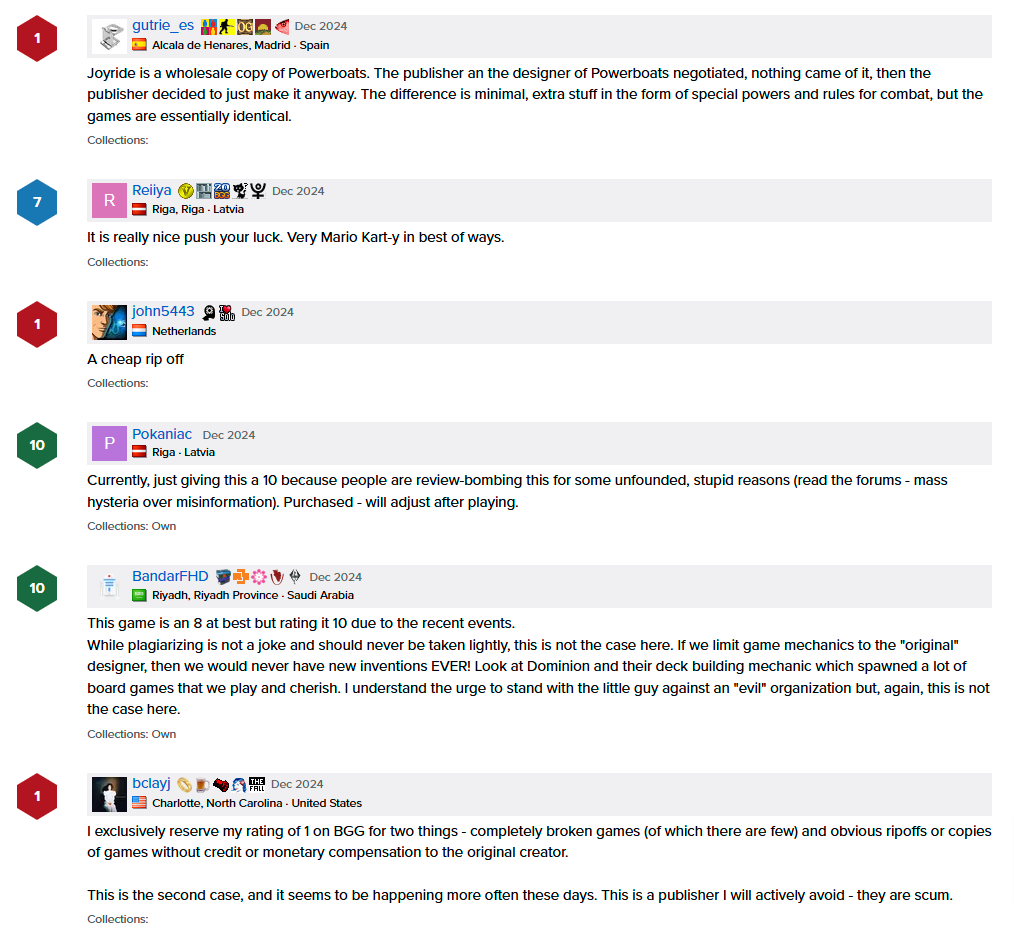
Rebellion Unplugged has since shared its own statement to van Moorsel’s BGG thread, which has now been locked.
It said, “Since this situation came to light last week, we have investigated the claims made. Our Publishing Director has been in direct email contact with Corné since Friday 29th November.
“While there are some similar mechanics, Joyride is a different game to Powerboats with many new and unique rules which make the gaming experiences very different. Saying Rebellion Unplugged or any individual intentionally copied the Powerboats system is false.
“Joyride was developed over several years with many games informing the design. We do acknowledge Powerboats as one influence among many, but not in any way to the extent suggested.
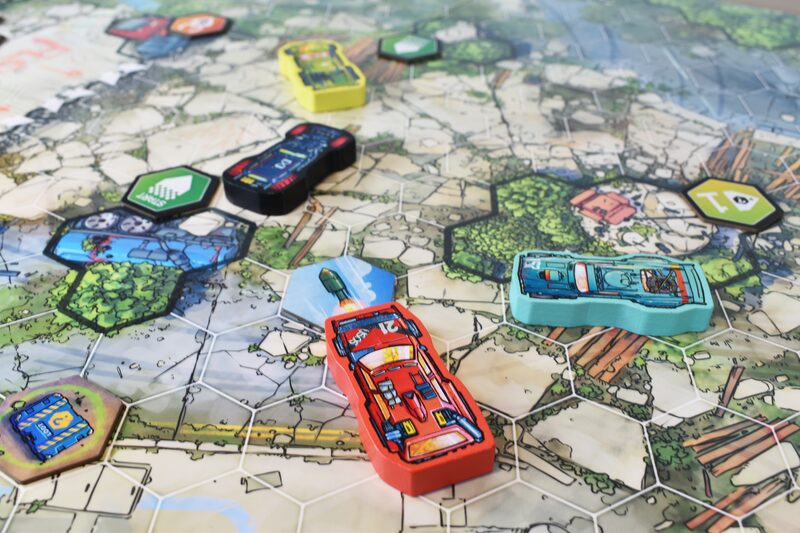
“In the email on November 29th we sent to Corné, we made the above clear and told him that we will be including an acknowledgements page in the rulebook for Joyride which will detail all of the influences behind the game.
“It will include the games that inspired Joyride, whether mechanically or in setting, theme or gameplay, including Powerboats. This page will be included in future reprints and we will update the digital edition of the rules.
“Rebellion apologized several times for the lack of communication Corné received in 2019. Corné should have been told in writing at the time that we didn’t want to pursue reissuing his game. Members of the boardgame media have also reached out to us and we have said the same as here.
“We recognize the concerns of the community as we at Rebellion Unplugged are all gamers ourselves and members of this community.
“Since this thread began our customers, reviewers and distribution partners have been contacted, and members of our team have been subject to online harassment. Rebellion will not tolerate harassment in any form. Any and all necessary and relevant steps will be taken in terms of legal considerations.”
Van Moorsel told BoardGameWire he did not know what Rebellion meant by their claims of harassment, but confirmed he had attempted to “reach Rebellion employees who are involved in the project”, and added that a few distributors had reached out to him to ask how they could help.
He said, “My request to speak to ‘Duncan’s boss’ is a totally normal and logical request after he made some clear and some almost clear mistakes over the five years course.
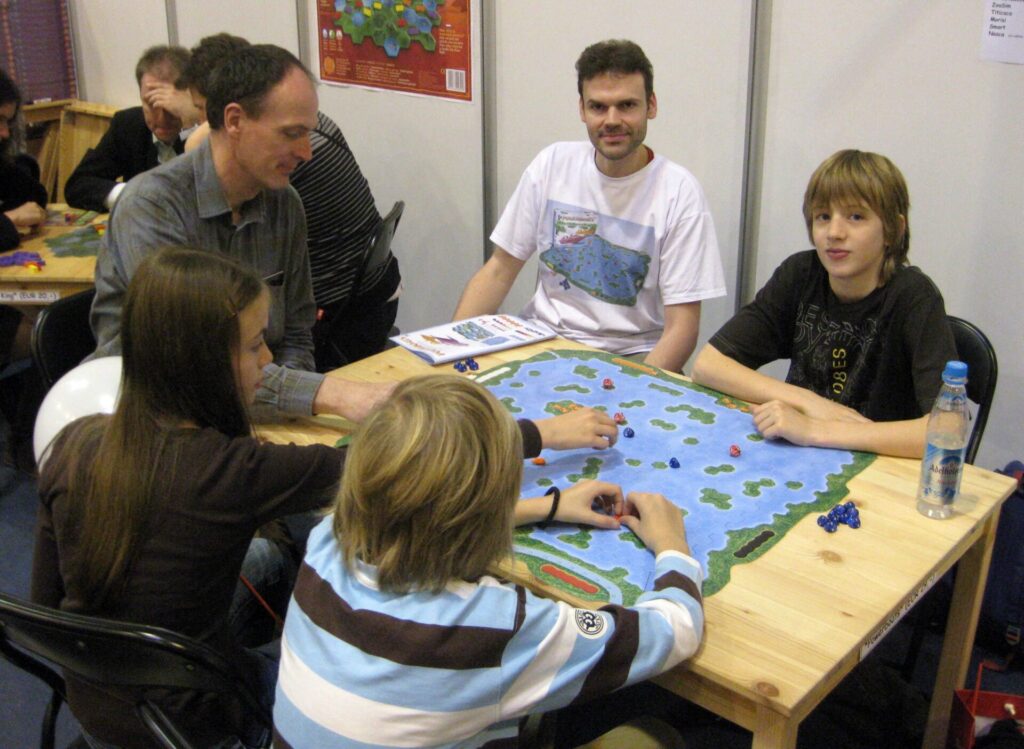
“Then ‘his boss’ would have several options to address the issue in an intelligent and fair way. Like consulting a specialist in the gaming industry to compare the games, or to compare the company’s behaviour to industry standards.
“In the end still Rebellion is free to finally make their own choices, but given the history and the discrepancy between the current company stance and the gamers’ (both friends and enemies’) consensus, they should look at it in such a serious and intelligent way. Instead of their method so far, which is just ‘deny, accuse, threaten’.”
Van Moorsel’s thread drew a large amount of attention from BGG users, with debate shifting back and forth about whether Joyride did indeed base a large amount of its systems on Powerboats, or whether it is a significantly distinct design in its own right.
But that debate is a moot point according to Geoff Engelstein, the co-founder of the Tabletop Game Designers Association – a professional organisation launched last year to fight on behalf of tabletop game designers.
He told BoardGameWire, “We’ve been following the situation with Powerboats and Joyride. We have not evaluated the rules of both games to see how similar or different they are, but even if we did, the question of ‘copying’ another game vs ‘being inspired’ by one is a continuum.

“The growth and innovation we have seen in the board game industry has been driven in part by designers building on the work of other designers. Regardless of whether designers or publishers believe they should be able to own or protect a specific mechanism, the US court system has already ruled that mechanisms are not protected by copyright.
“…In 2016 a clone of Bang was published by another company, with no license or compensation to Bang publisher Da Vinci. Art, the game title, and specific rules wording or terminology can be copyrighted, but not the underlying core of the game. Protection of ideas is still available via patents, but that is an expensive route and can be difficult to obtain for game mechanics. So Rebellion Unplugged is legally allowed to do what they have done, at least in the US.
“Now whether it’s morally acceptable is a separate question. Joyride definitely adds some elements to Powerboats. Whether that is ‘cloning’ or ‘inspiration’ is going to be a decision for each individual. It is impossible to quantify how ‘different’ a game needs to be before it is not a clone.
“This type of thing arises with patents, and it is challenging for courts to decide whether something infringes on a patent or not. We don’t have courts to fall back on in this case, so it will be up to the public.
“However, it is clear in this case that the designer/publisher was aware of Powerboats – they tried to license it initially. Given that it was so clearly based on that game, the publisher should have given a credit of some type to the Powerboats designer in the rules and wherever the design is discussed.
“Powerboats is only mentioned in passing in the Designer Diary posted on BGG. That would have been one opportunity to give credit to van Moorsel. Mentioning it in the rules would have been another.
“Celebrating designers is a key principle of TTGDA. Rebellion Unplugged absolutely failed to meet that standard.”
Engelstein, a designer of games including Space Cadets and The Expanse Board Game, added, “We have seen several comments about this issue that say that it is OK to include ‘tropes’ like deckbuilding and worker placement in a design, but not ‘original concepts’. We feel that this is misguided.
“Deckbuilding was absolutely an original concept when it came out. It only became a trope because so many people copied it. The first few iterations on deck building after Dominion were things like ‘Dominion plus combat’ or ‘Dominion with survival’. Again, there is no objective (or legal) standard to decide how different something needs to be to be in the clear.
“In terms of designers being concerned about protecting their designs, there are a few considerations. The Joyride / Powerboats issue is a case of a designer/publisher using an already-published game. While the publisher and designer did have contact prior to the publication of Joyride about a reprint, this is not an example of a publisher taking a game pitch and publishing it on their own.
“This is more akin to the aforementioned Bang / Legend of the Three Kingdoms situation, which has happened a few times – Toc Toc Woodman and Bamboo Bash, or Deflexion and Laser Chess. However, it is rare. Legally there is no way to stop this.
“When submitting a sell sheet or idea to a publisher, many designers have concerns that their idea will be stolen. While it has happened, this is exceedingly rare. And any reputable publisher will not do this, as there are tons of new ideas, and publishers would rather have the designer on board than risk bad publicity.
“There have been cases of ‘convergent evolution’, where companies are working on a design and a similar one is submitted, or they learn that one is being worked on. An example is The Insider (Oink) and Werewords (Bezier). Larger companies, like Hasbro, will have designers sign an agreement prior to a pitch where it says, among other things, that they may be working on an idea internally already, and if so you pitching a similar idea does not give you any claim on it.
“Some designers like to do the reverse, and have publishers agree to non-disclosure agreements prior to showing an idea, but most publishers are resistant to this. They see so many ideas, that the extra step of reviewing a legal document before every pitch is not worth the trouble.
“Ultimately information, publicity, and the court of public opinion are the best defenses to the very rare cases of bad behavior from publishers.”



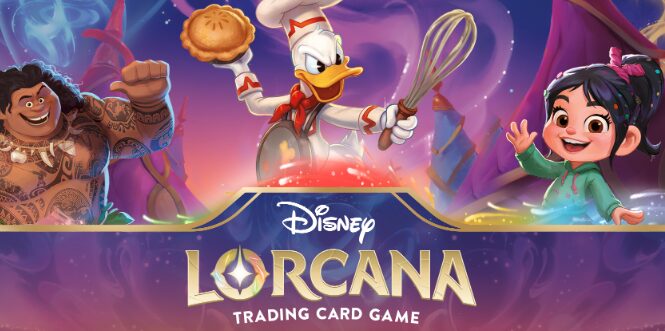
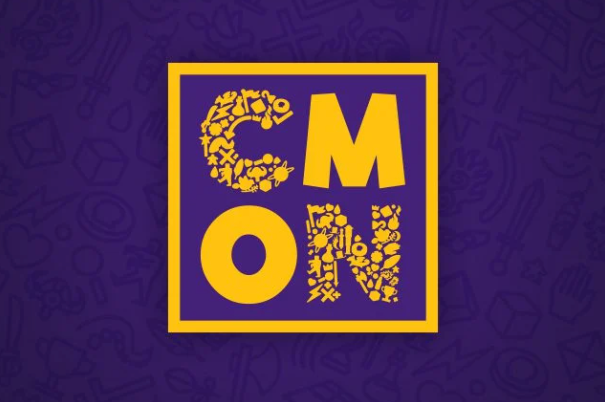
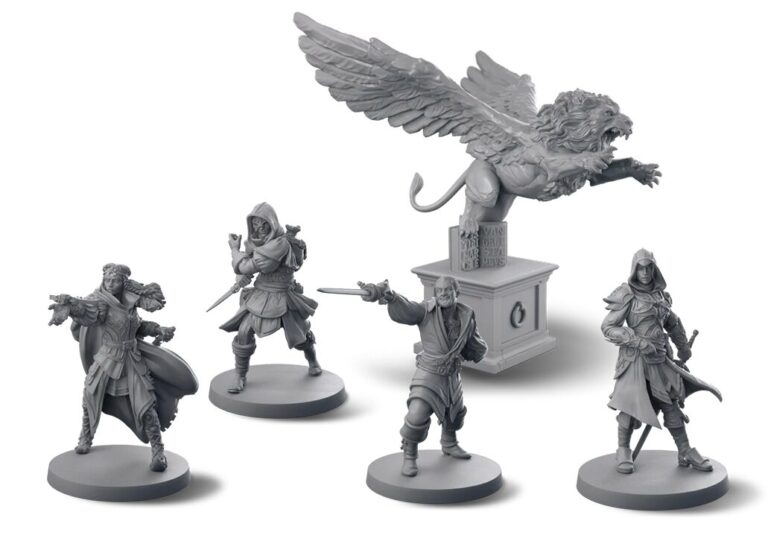
[…] has covered the situation in detail in this article – but Molloy has also provided extensive answers to BoardGameWire explaining where he […]